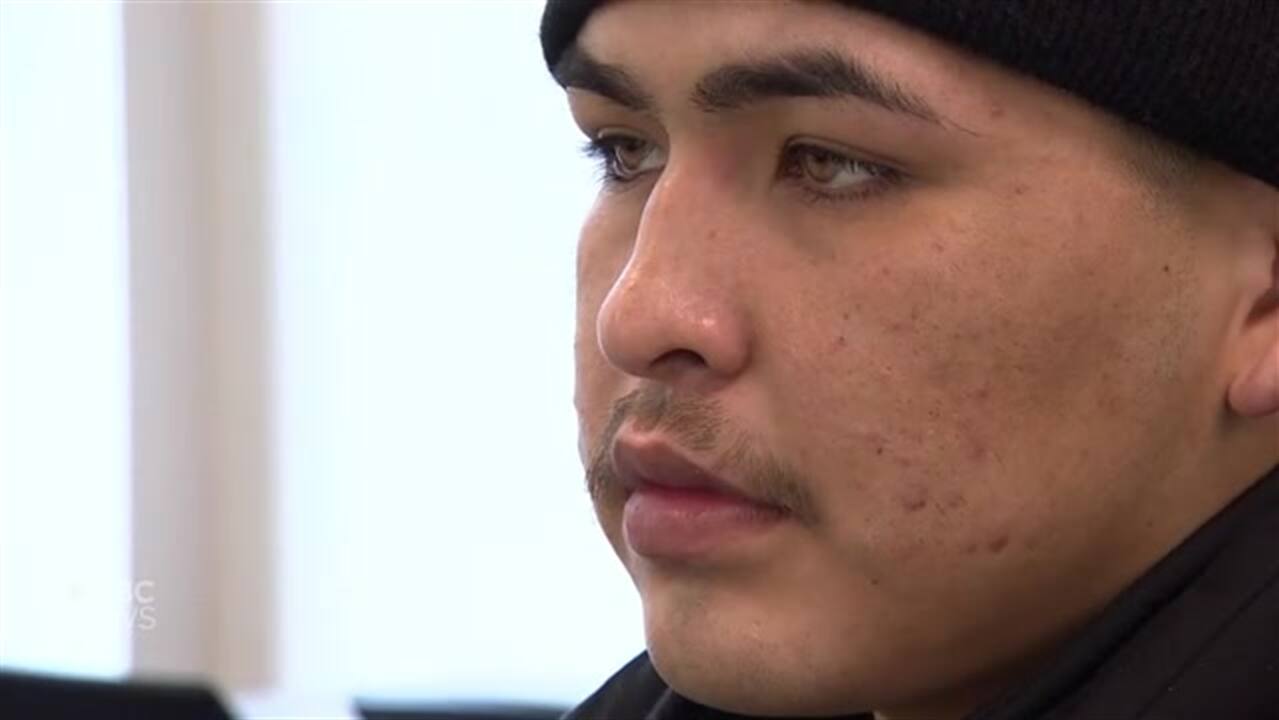‘I just didn’t feel wanted’: Former Indigenous student says school suspensions led to drop out
When Michael Henderson looks back on his high school years, he wonders how things would be different for him if hadn’t dropped out of school.
Henderson, now 21, was suspended five times over a two-year period from St. John’s High School, before dropping out in Grade 10.
The Ojibwe man says the first time he was suspended for a week was because he missed too many classes. The other times were because he got into verbal conflicts with other students.
“I got suspended five times and it made me feel kind of hard to catch up on my work and, like, I didn’t want to go there anymore,” Henderson said. “I just didn’t feel wanted there.”
Henderson is just one of hundreds of Indigenous students who were dealt suspensions by the Winnipeg School Division in recent years.
A report released by the Winnipeg School Division on Tuesday shows more than half the students suspended between 2016 and 2019 were Indigenous, though they comprise less than one-third of the student population.
The figures don’t come as a surprise to Janine Newton Montgomery, an associate professor in the school psychology program at the University of Manitoba.
She says national studies have long shown that minority groups are over-represented in school suspensions.
“I actually do think it’s really good that Winnipeg School Division shared this information,” Newton Montgomery said. “They’re showing their awareness, and, if we think about truth and reconciliation, the first step is telling the truth.”

She says the WSD data could point to racial bias in the system, but also inequities among students and access to supports.
The former school teacher says suspensions can be handed out for a variety of reasons, ranging from extremely serious situations, such as violence or safety concerns, to things including attendance or interpersonal conflicts. It’s often at the school’s discretion.
Newton Montgomery says while some severe cases warrant a suspension, the practice should be used sparingly and should never be the only action taken.
“Unfortunately a lot of the children who are suspended have terrible attendance, or they have limited opportunities elsewhere or they’ve got behaviour and emotional problems that need to be addressed and those are not being supported in a suspension,” she said.
“Excluding a child from school for a behaviour incident and then expecting them to come back as if nothing happened and as if everything is going to be OK is rarely effective.”

Suspensions can reinforce negative behaviours, such as skipping classes or even send students into situations that are worse if their home-life is not supportive.
The WSD report found that lower median household incomes tend to be associated with higher suspension rates.
“Sometimes the reason that they’re engaging in a behaviour is something as simple as they don’t have a basic need that’s being met,” said Newton Montgomery.
“And then to punish them for the fact that they haven’t had breakfast, they don’t have safety at home or something like that, it just makes the problem worse and then in terms of the outcomes, makes that kid feel worse about themselves.”
The report also showed those who were given suspensions had poor outcomes in terms of grades and completing courses.

Henderson recalls that each time he was suspended there was no further conversations about what led to his behaviour, and there weren’t any attempts to try to resolve the conflicts with other students.
“I think the teachers could have handled it better,” he said. “Detentions or something, or help us work it out.”
Henderson, who is looking for work, hopes to go back to school eventually to get his GED.
Newton Montgomery says many schools in Winnipeg are teaching students to problem solve and talking about mental health, which she says works to reduce suspensions and build relationships.
“When it comes to Indigenous kids, I think we should be talking to the Indigenous community about how best to do that,” she said. “Many Indigenous communities use restorative justice models where the child makes amends and really becomes aware of the impact of their behaviours.”
Michael Henderson is just one of hundreds of Indigenous students who were dealt suspensions by the Winnipeg School Division in recent years. A report released by the division on Tuesday shows more than half the students suspended between 2016 and 2019 were Indigenous, though they comprise less than one-third of the student population. 2:07






